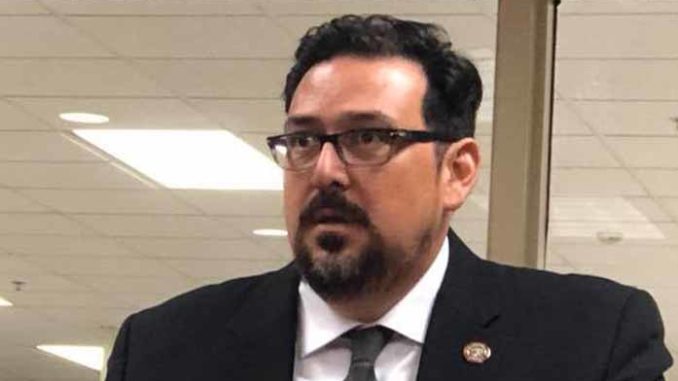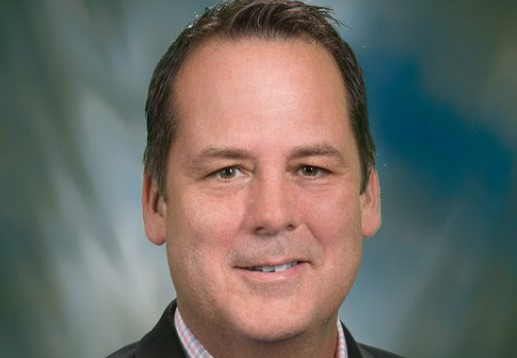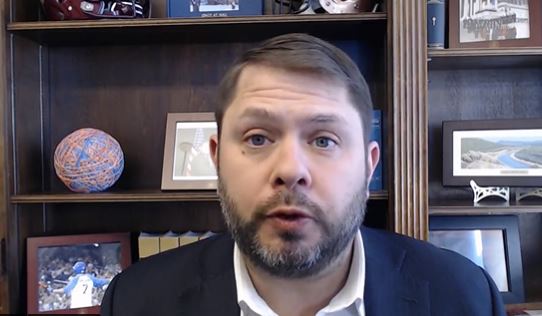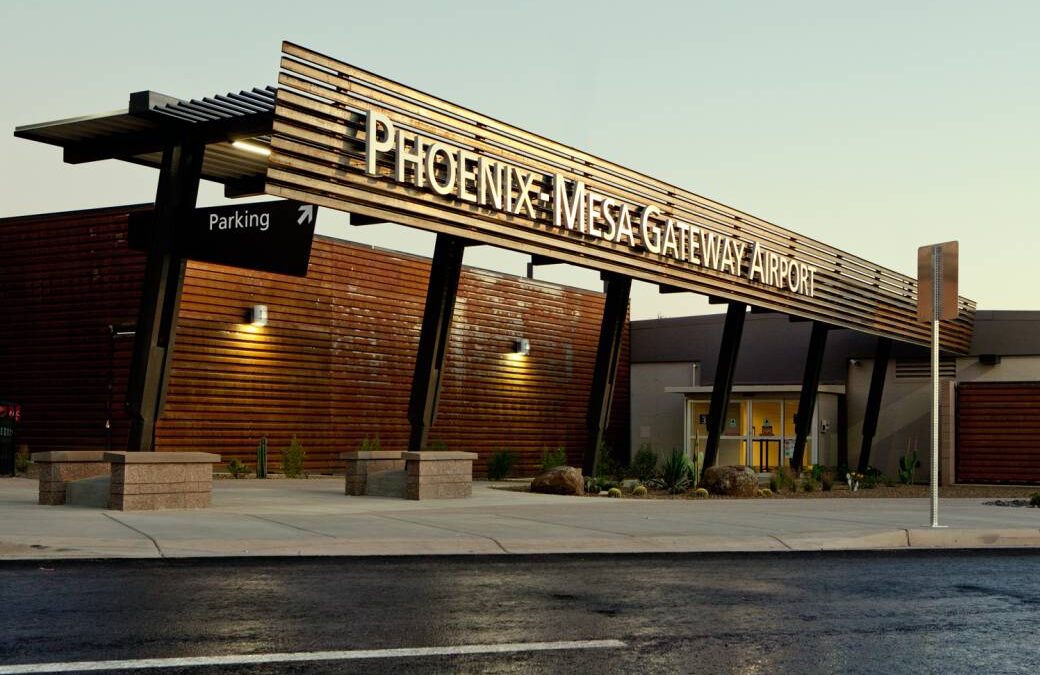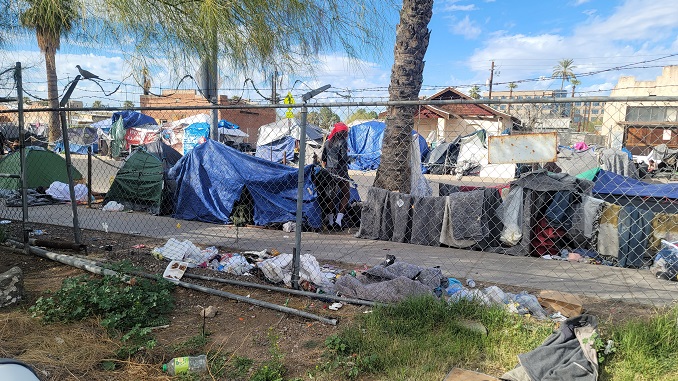
by Daniel Stefanski | Jul 29, 2023 | News
By Daniel Stefanski |
Two Arizona Republican legislators are raising concerns over a draft of the new Elections Procedures Manual (EPM) from Secretary of State Adrian Fontes.
On July 18, Representatives Jacqueline Parker, the Chairwoman of the Arizona House Committee on Municipal Oversight & Elections, and Alexander Kolodin, the Committee’s Vice Chair, transmitted a letter to Secretary Fontes, highlighting certain issues with the initial copy of the EPM that they had seen from his office.
The lawmakers were grateful that Fontes allowed them to see his draft, and they expressed optimism that “with legislative guidance, the 2023 EPM will not meet the same fate as the 2021 EPM, and that Arizonans will be assured that all drafts, including the final draft presented to the Governor and Attorney General, are legally consistent with Arizona election law.” They called the 2021 saga “both unprecedented and unacceptable,” writing, “Your predecessor’s failure to issue a lawful EPM ultimately led a court to decide that the 2019 EPM was in effect for Arizona’s 2022 elections, rather than an updated, legally compliant 2021 EPM.”
In their letter to Secretary Fontes, Parker and Kolodin identified eight possible violations of Arizona statutes in four chapters of the draft EPM:
– Chapter 1: Early Voting
o “Part I, page 5 moves ‘date of birth’ from required information to additional information that may be provided by a voter to receive an early ballot.”
o “Part I, page 3 allows the County Recorder to send a requested early ballot ‘after 5:00pm the 11th day preceding the election if the County Recorder has sufficient time to do so.”
o “Part I, page 16 requires the County Recorder or officer in charge of elections to supply printed instructions that ‘provide the voter instructions on how to make their intent clear if they inadvertently mark the target area for a candidate or ballot measure.’”
o “Part I, page 18 includes the exclusion of an established Ballot Replacement Center.”
– Chapter 2: Ballot-by-Mail Elections
o “Part I, page 31 refers to ‘precinct with 300 or less registered voters.’”
– Chapter 7: Pre-Election Procedures
o “Part II, page 34 allows the officer in charge of elections to allocate specified duties to any board member as deemed appropriate, including ‘taking appropriate measures to preserve order, prevent voter intimidation, and manage voter lines.’”
– Chapter 8: Election Day Operations
o “Part III, page 8 adds additional examples ‘potentially intimidating conduct’ that supersedes statutory law.”
o “Part III, page 19 adds language that prohibits a challenger from speaking to a challenged voter to ‘prevent harassment and intimidation of the challenger voter.’”
The two Representatives also requested that “future drafts of the EPM contain statutory references for each provision to provide county officials with the statutory source of each EPM provision.” Parker and Kolodin pointed out two sections in the draft EPM where there were no statutory references – as examples to illustrate their issue.
As they concluded their letter to the state’s elections chief, the legislators commented that they “are looking forward to seeing these provisions addressed prior to the EPM’s submittal to the Governor and the Attorney General on October 1, 2023.” They promised to communicate in a timely manner with the Secretary’s Office “about any other concerns that might arise,” and they asked for a written response to their letter by July 25.
Daniel Stefanski is a reporter for AZ Free News. You can send him news tips using this link.

by Daniel Stefanski | Jul 29, 2023 | News
By Daniel Stefanski |
A former state legislator is seeking to return to the Arizona House of Representatives.
On Thursday, former Representative Jeff Weninger sent out an email announcing that he was “back in the fight,” telling those on his email list that he was “excited to announce that I’m running for State Representative in the new Legislative District 13.”
Weninger served in the state house for four terms before running for Arizona Treasurer in the Republican primary in 2022. He also was a member of the Chandler City Council for eight years.
Constituents of this legislative district are currently served in the state house by Representatives Jennifer Pawlik (a Democrat) and Julie Willoughby (a Republican). Willoughby was selected by the Maricopa Board of Supervisors to fill a vacated seat earlier this legislative session. On May 2, Pawlik announced that she would not be seeking reelection. The Democrat wrote that “it’s time to take my leadership and service in a new direction and to open the door for new candidates to run in this district.”
In his email, Weninger shared that, over the past year, he had moved his son to college, helped his daughter begin her high school journey, spent more time with his business, and invested in his community. He noted that “things are going really well” for him – but “unfortunately not every Arizonan feels the same way.” The former lawmaker stated that “inflation and prices are climbing, energy costs are higher than ever, and parents are struggling with decisions on the best educational environment for their kids.”
He went on to boost his track record with his prior service in the state house, highlighting that he “fought to lower your taxes, keep our cost of living affordable, support our first responders, and make Arizona one of the most business-friendly states in the country.”
Just last month, Weninger engaged Democrat Senator Mitzi Epstein on Twitter over the issue of the food municipal tax repeal, which was vetoed by Governor Hobbs after passing through the Republican-controlled Legislature in the spring. Weninger posted: “Sen. Epstein…. In your tweet you said “And NOT another regressive sales tax causing the middle class to pay for everything – again!” How do you square that with your opposition to eliminating tax on food? (essential item to live)”
After Epstein replied to his query with her worry that the elimination of the food tax would result in “less funding for after-school childcare,” Weninger responded, “Why not just let those folks who need after school care just keep more of their money from food taxes? Also Schools and Boys & Girls Club & ICAN provide after school care in Chandler & they do a wonderful job.”
He later added another comment to the discussion, saying, “I don’t really hear an argument against it. It is just the same parlor tricks of telling people that by letting them keep their money it somehow takes something away from them.”
Daniel Stefanski is a reporter for AZ Free News. You can send him news tips using this link.

by Corinne Murdock | Jul 28, 2023 | News
By Corinne Murdock |
The Arizona desert’s classic dry heat should now qualify as an “extreme heat,” according to Democratic lawmakers and leadership.
Rep. Ruben Gallego (D-AZ-03) is lobbying for more federal funding to counter the desert heat. Democrats at all levels have recharacterized summer temperatures as “extreme heat” in an attempt to pull more funding for a variety of progressive initiatives ranging from climate change to social justice. Trending usage of the word “extreme heat” has increased dramatically over the past 20 years, spiking with increased regularity every summer.
In a press release, Gallego commended President Joe Biden for increasing heat-related worker protections on Thursday. As part of the changes, Biden met with Phoenix Mayor Kate Gallego, the congressman’s ex-wife, and San Antonio, Texas Mayor Ron Nirenberg. Yet, those changes fell short of Rep. Gallego’s ultimate goal: he urged the Biden administration to go one step further by classifying heat as an emergency.
“Far too many people are dying or falling ill from these extreme temperatures,” said Rep. Gallego. “[M]ore must be done. We need a swift, immediate deployment of resources, and that requires FEMA declaring extreme heat as an emergency. I will continue pushing the administration and Congress to get that done.”
Both Gallegos have worked together to lobby the federal government to declare summer heat as an emergency.
During her annual state of the city address in April, Mayor Gallego petitioned the Federal Emergency Management Agency (FEMA) to qualify extreme heat as a disaster by adding the regular seasonal occurrence to its national emergency declarations categorization.
A FEMA recognition would bring in more federal funding. The city has a number of heat mitigation projects that would likely benefit from such funding, like the manufactured shade and drinking water access areas known as “cool corridors,” which are determined on an equity basis, and the special sunlight reflective streets known as “cool pavement.” (Which, as AZ Free News reported, actually makes people hotter). Those initiatives were unique creations under Mayor Gallego’s administration.
Mayor Gallego was also responsible for the creation of one of the first heat mitigation offices within city government: the Office of Heat Response and Mitigation (OHRM). The city established the office with $2.8 million in 2021, with the explicit attempt to combat urban heat: the theory that urbanization causes higher temperatures.
Presently, the OHRM doles out COVID-19 relief federal funding provided by the American Rescue Plan Act (ARPA) for annual heat relief grants. These grants are earmarked for nonprofit, charitable, small business, and faith-based organizations existing within the city-recognized Maricopa Association of Governments Heat Relief Network that claim negative impacts from the COVID-19 pandemic. OHRM will give out a maximum of $450,000 total, with each recipient receiving anywhere from $10,000 to $25,000.
A major focus of the OHRM is providing heat respite for the homeless. The latest update from OHRM, issued last summer, announced initiatives costing millions to increase the comfort of the homeless residing within the infamous mass homeless encampment known as the Zone: the creation of seven new shade structures; distribution of insulated and reusable water bottles, hats, sunscreen, personal misters, towels, ice chests with water; and 475 shelter beds for 24/7 heat respite.
The first and current OHRM director is Arizona State University (ASU) professor David Hondula, who teaches within the Global Institute of Sustainability. ASU worked with the city of Phoenix on the trial run and report ahead of the full launch of the cool pavement program.
After the mayor, Rep. Gallego introduced the Extreme Heat Emergency Act last month. Rep. Gallego said that extreme cold weather warrants federal disaster relief and contended that the same should be the case for the opposite of extreme heat.
“If you’re in Chicago and you have two weeks of extreme cold weather and snow and 400 people die, and Chicago calls the federal government, they will get money from the federal government,” said Gallego.
As AZ Free News reported this week, a majority of heat deaths in Maricopa County last year were due to meth.
Rep. Gallego also introduced similar legislation last year alongside Rep. Bonnie Watson Coleman (D-NJ-12). Last year’s version, the Excess Urban Heat Mitigation Act of 2022, would establish a grant program through the Department of Housing and Urban Development. It never made it past introduction.
In this latest announcement from Biden on Thursday, the president directed the Department of Labor (DOL) to issue a Hazard Alert for heat and ramp up workplace heat-safety violation enforcement, allocated $7 million in Inflation Reduction Act (IRA) funding to the National Oceanic and Atmospheric Administration (NOAA) for weather prediction improvements, and allocated $152 million in Bipartisan Infrastructure Law (BIL) funding to expand water storage and equity-based climate resilience efforts in California, Colorado, and Washington.
The Biden administration has invested over $50 billion so far to address climate issues like heat waves. They have also established a website providing information on federal funding opportunities to mitigate health risks from heat, the #SummerReady awareness campaign, established the new Office of Climate Change and Health Equity, funded 10 community groups and localities for equitable heat relief, and launched heat mapping campaigns in 154 communities across 14 states.
Earlier this month, the Biden administration announced other heat mitigation initiatives: $5 million to NOAA for two virtual research centers providing technical assistance and information to historically marginalized and underserved communities, a National Heat Strategy focused on equity and environmental justice developed by the White House Interagency Working Group (IWG) on Extreme Heat, meetings with local and tribal leadership to offer federal support for summer heat, and affordable housing opportunities using IRA and BIL funding.
Corinne Murdock is a reporter for AZ Free News. Follow her latest on Twitter, or email tips to corinne@azfreenews.com.

by Corinne Murdock | Jul 28, 2023 | Economy, News
By Corinne Murdock |
Plans by state and local leadership to establish Arizona as a leader in semiconductor manufacturing have stalled due to a lack of skilled workers.
Taiwan Semiconductor Manufacturing Company (TSMC) announced last week that it will delay production until 2025: a full year after their initially planned launch. TSMC produces 90 percent of the world’s microchips, supplying major products like Apple’s iPhone, iPad, and Mac computers.
TSMC Chair Mark Liu indicated in last week’s second quarter earnings call that efforts on their end to gin up an adequate workforce couldn’t counter the limited talent pool in the country.
“We are encountering certain challenges, as there is an insufficient amount of skilled workers with those specialized expertise required for equipment installation in a semiconductor-grade facility,” said Liu. “While we are working to improve the situation, including sending experienced technicians from Taiwan to train the local skilled workers for a short period of time, we expect the production schedule of N4 process technology to be pushed out to 2025.”
Maricopa County Community Colleges (MCCC) partnered with Intel to launch a program last year to supplement the burgeoning semiconductor industry’s workforce, estimated to be around 3,000 workers between Intel and TSMC. Students who pass certification receive a $270 stipend to cover the tuition cost.
TSMC raised their investment in the state from $12 billion to $40 billion ahead of President Joe Biden’s visit to tour the Phoenix facility last year.
Biden’s TSMC appearance marked his first and only trip to the state during his entire presidency — even with the ongoing border crisis. Biden justified prioritization of a manufacturing facility over the border crisis by claiming the border wasn’t important.
Biden’s first and, so far, only interest in visiting Arizona may align with his consistent desire to prioritize business and personal interests over national interests (as reflected by his alleged involvement in the laptop debacle revealing corrupt foreign business dealings by his son, Hunter Biden). Biden said during his TSMC speech that he “owe[s] an awful lot” to TSMC because the wife of its founder, Morris Chang, worked his first Senate campaign.
Phoenix Mayor Kate Gallego also has ties to TSMC. Gallego’s former senior policy advisor and campaign donor, Laura Franco French, serves as TSMC’s director of state government relations. Franco French joined TSMC in 2021 immediately after departing Gallego’s office, where she’d served since Gallego became mayor in 2019.
Gallego’s TSMC connection may explain her apparent lack of concern with TSMC’s delay. When asked about the TSMC issue with obtaining skilled workers during an interview on Sunday, Gallego responded with a non-answer.
“We are very excited to be the future of semiconductors. It’s so important that we’re onshoring manufacturing of these essential devices in the United States and we’re going to take an all-hands-on deck approach to make sure it is successful,” said Gallego. “President Biden has picked Phoenix as one of the innovation job hubs and will be able to partner with the US Department of Commerce in particular, but across his administration to do training for our residents. We have a very successful project with our community college where people can get a six-week certificate in semiconductors that’s produced hundreds of graduates so far, but we know we have to turn it up so that we can deliver not just for Arizona but for the world.”
In addition to the shortage of skilled workers, TSMC’s development in Arizona may be delayed due to other concerns with health and environmental impact.
Perfluoroalkyl and polyfluoroalkyl substances (PFAS) — dubbed “forever chemicals” for their resistance to breaking down — are integral to microchip production. PFAS have been linked to a host of serious health issues concerning fertility, fetal development, bone variations, behavioral changes, accelerated puberty, high blood pressure, liver disease, cancer, lowered immunity, hormone disruption, thyroid disease, high cholesterol, and obesity. Chemical waste from factory production has led to PFAS contaminating water and, consequently, humans and the environment.
The Biden administration has progressively focused on PFAS with increasing pressure. Last June, the Environmental Protection Agency (EPA) issued four drinking water health advisories for PFAS. Last August, the EPA proposed designating two of the most widely used PFAS as hazardous substances. Last December, the EPA required facilities to report on all PFAS usage. In March, the EPA issued its first-ever proposal to regulate PFAS in drinking water.
READ MORE EPA ACTIONS ADDRESSING PFAS
The Biden administration has offered $3 billion in grants to states and territories to clean up PFAS in drinking water; it also launched an analytics tool for the public to track PFAS contamination.
3M announced in December that it would halt PFAs production by 2025, a move which set off alarm bells for TSMC and other chipmakers. The announcement came ahead of the company’s $10.5 to $12.5 billion settlement for drinking water contamination.
Corinne Murdock is a reporter for AZ Free News. Follow her latest on Twitter, or email tips to corinne@azfreenews.com.

by Daniel Stefanski | Jul 27, 2023 | News
By Daniel Stefanski |
A Phoenix-area airport is celebrating a historic year of operations in the Valley of the Sun.
Last week, Phoenix-Mesa Gateway Airport announced that it had “set a new record for commercial passenger activity – its busiest year ever.”
Gateway Airport noted that almost two million (1,917,911) passengers were welcomed in Fiscal Year 2023 – 5.6% above the number of passengers in Fiscal Year 2022.
The Chairman of the Phoenix-Mesa Gateway Airport Authority Board of Directors, Apache Junction Mayor Chip Wilson, praised the news from the airport, saying, “The growth of Gateway Airport over the past few years has been phenomenal. The Airport’s continued growth is providing tremendous economic benefit for the entire greater Phoenix region. We look forward to welcoming even more sun-seeking visitors through the Airport this year.”
J. Brian O’Neill, A.A.E. Executive Director/CEO of Phoenix-Mesa Gateway Airport Authority, also contributed a statement to the announcement, thanking everyone who had made this historic year possible for his airport: “More and more air travelers are discovering the value and convenience of using Gateway Airport. The Airport would like to thank its airline partners, airport tenants, and our passengers for helping make FY23 a record year.”
According to Gateway Airport, it recently “opened several new food and beverage concessions to provide more options for the growing number of air travelers choosing the Airport.” Also, “the Airport is currently constructing a 5-Gate, 30,000 sq. ft. terminal addition and an enclosed pedestrian walkway connecting the airline ticket counters to the TSA Screening Checkpoint.”
Earlier this year, Gateway Airport announced that it welcomed 1,890,684 passengers in 2022, which was its best year ever (6.5% over its previously high number in 2019). Gilbert Mayor Brigette Peterson said at the time, “More and more Arizona residents, along with out-of-state, sun-loving travelers are choosing Gateway Airport for their flight needs because of its exceptional value and convenience.”
Daniel Stefanski is a reporter for AZ Free News. You can send him news tips using this link.

by Corinne Murdock | Jul 27, 2023 | News
By Corinne Murdock |
A majority of heat deaths in Maricopa County are attributable to methamphetamine, according to the latest Maricopa County Department of Public Health heat deaths report.
53 percent of heat deaths involved meth last year, or 226 deaths. 67 percent of deaths involved some type of substance abuse. The county noted that the proportion of heat deaths involving drug use has increased over the years.
The homeless make up the largest class of all heat deaths: 178 met that characterization (150 were classified as having “unknown” living situations). Nearly 70 percent of all heat deaths last year occurred in urban areas.
Although the homeless made up the most heat deaths last year and in 2020, that wasn’t the case from 2012 to 2019. More non-homeless individuals suffered heat deaths during those years than the homeless.
Phoenix had the most heat deaths last year, 245, followed far behind by Mesa at 36 deaths and then Glendale at 22 deaths. Scottsdale and Tempe both had 10 deaths, Avondale and Peoria both had 8 deaths, Chandler had 7 deaths, and Gilbert had 6 deaths.
Phoenix also holds the vast majority of the homeless population in the county. The Maricopa Association of Governments reported a 36% increase in homeless individuals in the county from 2019 to last year. That increase was most greatly felt at the very heart of downtown Phoenix, evident in the mass homeless encampment called “The Zone.”
Phoenix Mayor Kate Gallego has used heat deaths to bolster her campaign to declare The Valley’s regular summer heat as a federal emergency. Such a declaration would result in the awarding of federal relief funds.
During her annual state of the city address in April, Mayor Gallego petitioned the Federal Emergency Management Agency (FEMA) to qualify extreme heat as a disaster by adding the regular seasonal occurrence to its national emergency declarations categorization.
A FEMA recognition would bring in more federal funding. The city has a number of heat mitigation projects that would likely benefit from such funding, like the manufactured shade and drinking water access areas known as “cool corridors,” which are determined on an equity basis, and the special sunlight absorption streets known as “cool pavement.” Those initiatives were unique creations under Mayor Gallego’s administration.
Mayor Gallego was also responsible for the creation of one of the first heat mitigation offices within city government: the Office of Heat Response and Mitigation (OHRM). The city established the office with $2.8 million in 2021, with the explicit attempt to combat “urban heat”: the theory that urbanization causes higher temperatures.
Presently, the OHRM doles out COVID-19 relief federal funding provided by the American Rescue Plan Act (ARPA) for annual heat relief grants. These grants are earmarked for nonprofit, charitable, small business, and faith-based organizations existing within the city-recognized Maricopa Association of Governments Heat Relief Network that claim negative impacts from the COVID-19 pandemic. OHRM will give out a maximum of $450,000 total, with each recipient receiving anywhere from $10,000 to $25,000.
A major focus of the OHRM is providing heat respite for the homeless. The latest update from OHRM, issued last summer, announced initiatives costing millions to increase the comfort of the homeless residing within the The Zone: the creation of seven new shade structures; distribution of insulated and reusable water bottles, hats, sunscreen, personal misters, towels, ice chests with water; and hundreds of shelter beds for 24/7 heat respite.
The first and current OHRM director is Arizona State University (ASU) professor David Hondula, who teaches within the Global Institute of Sustainability. Hondula was named director of the office overseeing the pavement initiative within weeks of publication of a joint study on the city’s “cool pavement” infrastructure, which the city knew ahead of expansion would make people hotter.
Although FEMA hasn’t heeded Gallego’s call, her Congressman ex-husband did. Rep. Ruben Gallego (D-AZ-03) introduced the Extreme Heat Emergency Act last month.
Per the latest county heat deaths report, fatalities decreased from 2012 to 2014. 2012 totaled about one-fourth of last year’s deaths and 2014 reached a low of 61 deaths. Deaths then increased from 84 in 2015 to 199 in 2019, spiking to 323 in 2020 and steadily increasing since then.
The county report also revealed that African American and Native American individuals made up the most heat deaths: 13 per 100,000 and 9 per 100,000, respectively. White individuals followed closely behind at nearly 8 per 100,000 deaths.
Corinne Murdock is a reporter for AZ Free News. Follow her latest on Twitter, or email tips to corinne@azfreenews.com.
